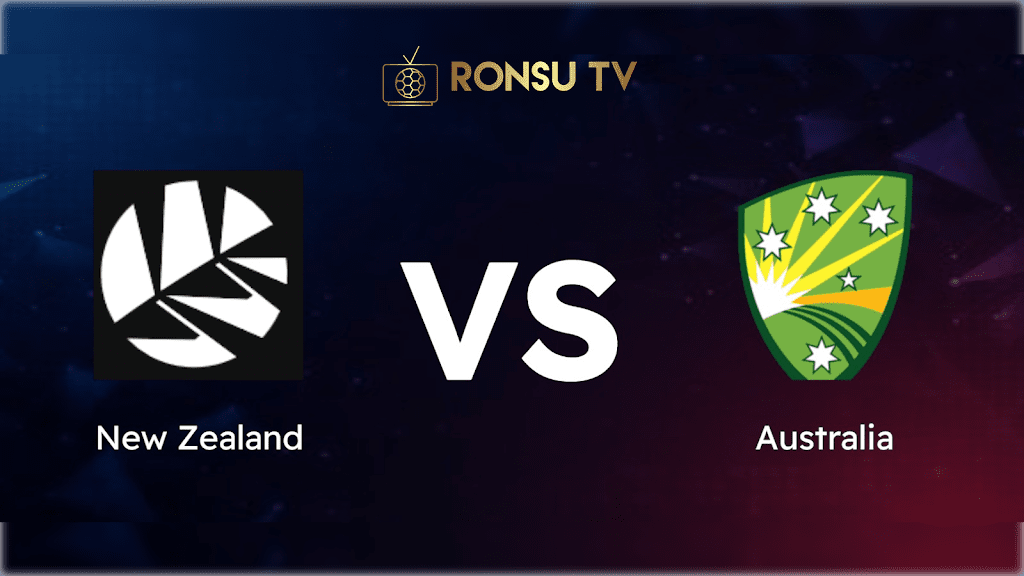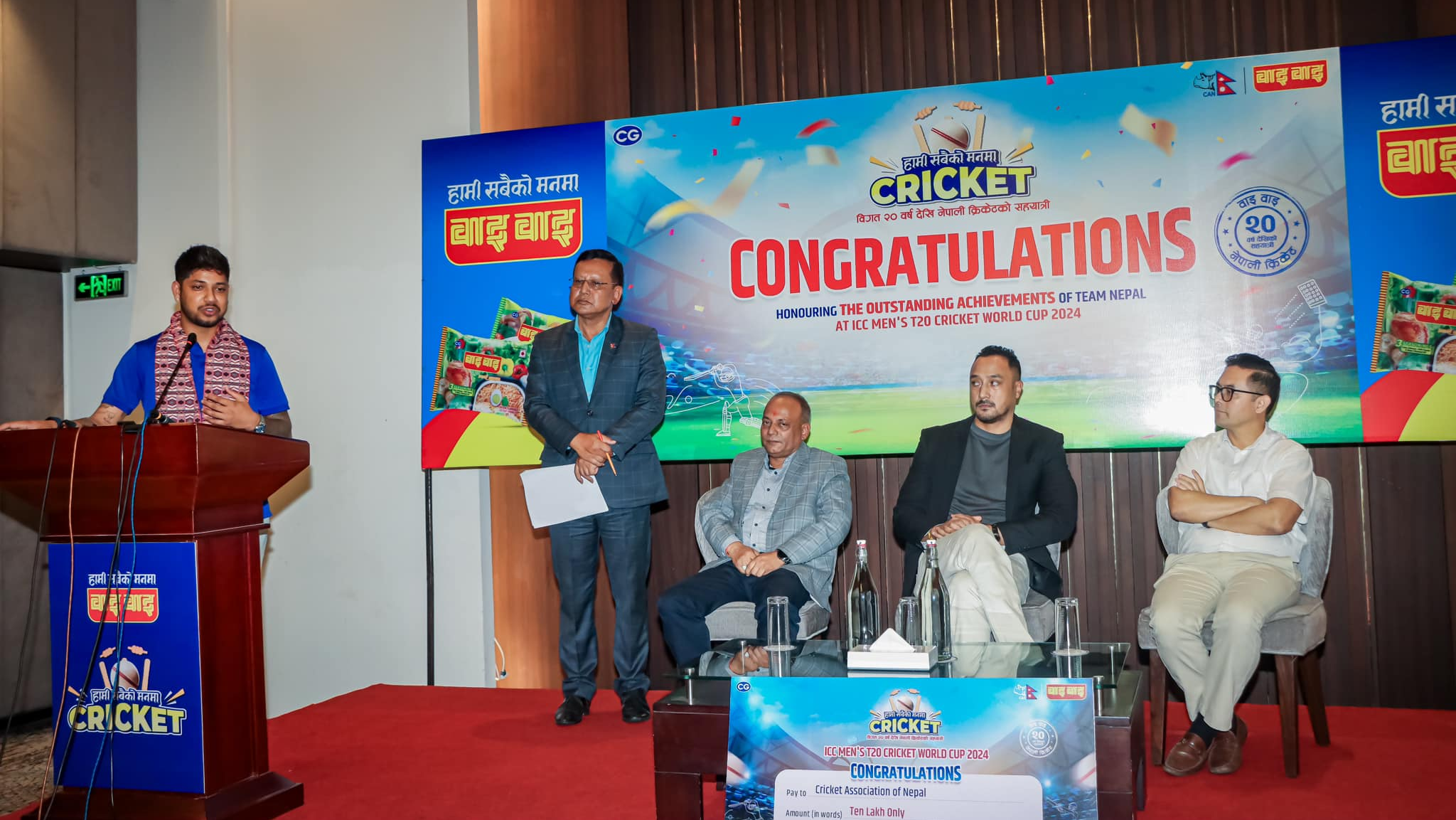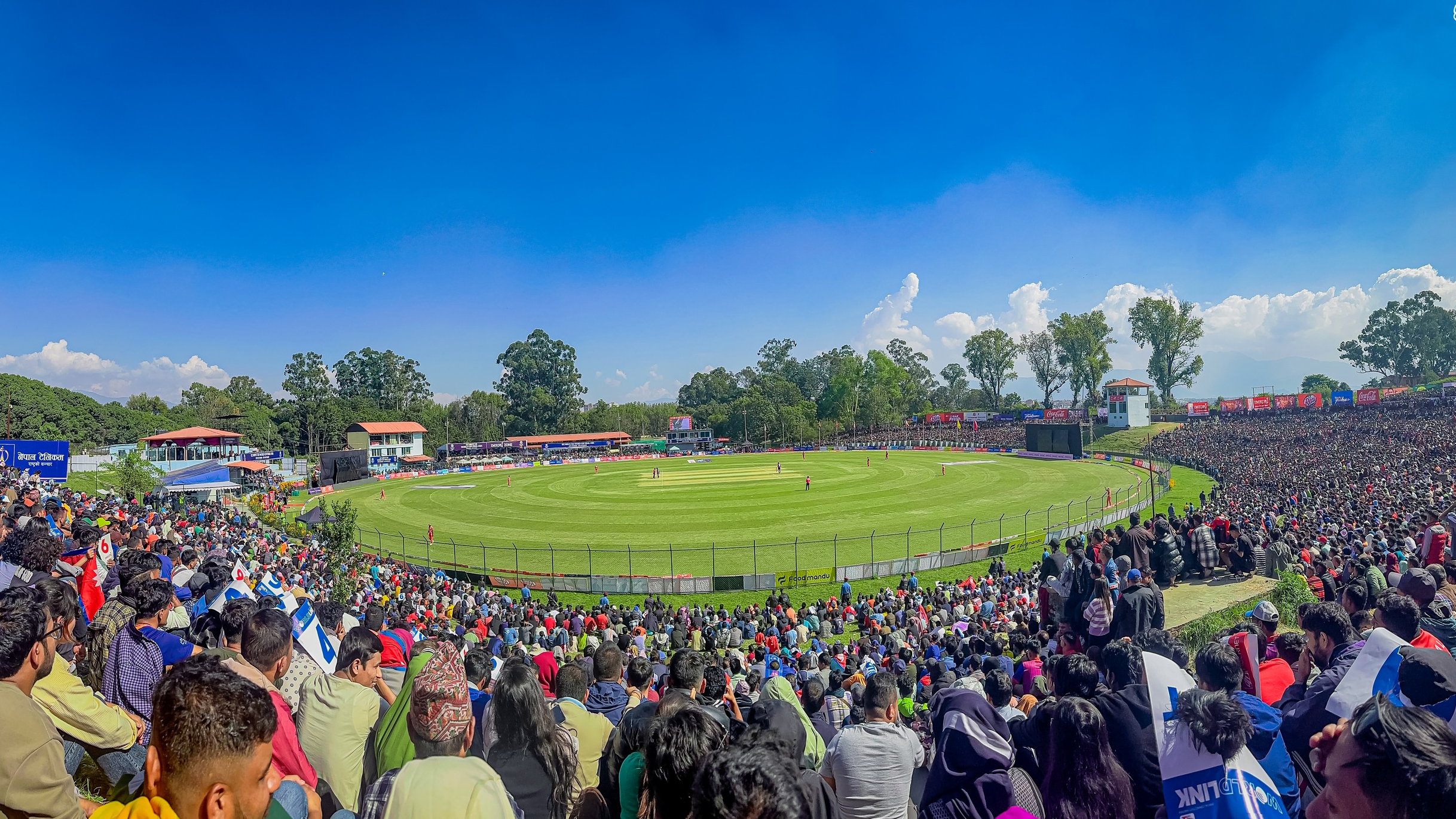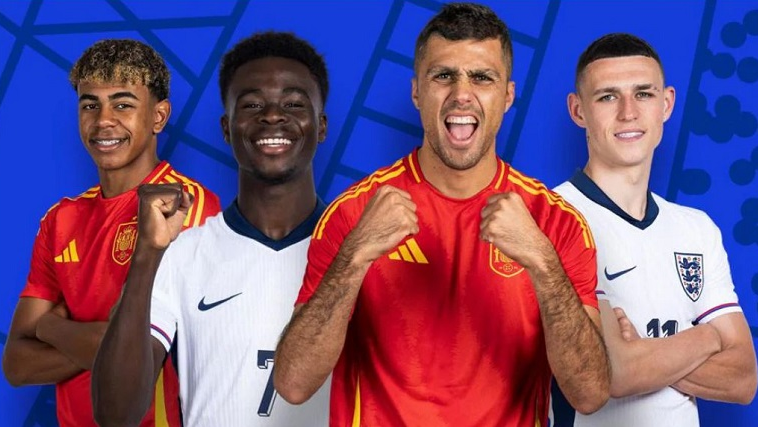Players from Australia and New Zealand will have significant T20 World Cup preparation as they compete for the Chappell-Hadlee Trophy.
Series details: Timetable:
February 21: Wellington’s Sky Stadium (at 5.10 p.m. AEDT)
February 23: Eden Park, Auckland (5:10 p.m. AEDT)
February 25: Eden Park, Auckland (11 a.m. AEDT)
How to watch:
Fox Cricket and Kayo Sports are the only places to catch every live ball of the series.
Team’s Recent Performance:
Past 10 matches, most recent first. W: win, L: loss, T: tie
Australia: LWWLLWLLWW
Australia will be expecting a lot because, in their most recent Twenty20 series, they overcame an almost full-strength West Indies team 2-1 while Josh Hazlewood only played in one game and Mitchell Starc, Pat Cummins, Steve Smith, and Travis Head were rested.
Prior to this series, Australia had a whole different team preparing for five Twenty20 matches in India, which came just after a 50-over World Cup victory. While others flew in to cover the vacancies, a large number of the team’s regular first-choice players returned to Australia to recuperate. Tanveer Sangha, Matt Short, Aaron Hardie, and Spencer Johnson all made their series debuts in Australia’s 4-1 loss to player-managed India.
New Zealand: LWWWWWDLWW
Aside from the “dead rubber” encounter at the end, New Zealand, like Australia, won every game in their most recent Twenty20 series. The Black Caps’ five-game series replaced the three-game one; that was the only change.
The Black Caps proved to be a dominant team with great performances throughout the series, even though they were up against a tough Pakistani team.
Against England, the Black Caps famously rallied from a 2-0 deficit in September of last year to tie the series. In the game’s tiniest format, it is evident that they are a strong opponent and will be a problem.
Teams Squad:
Australia T20 Squad: Mitchell Marsh (c), Pat Cummins, Tim David, Nathan Ellis, Josh Hazlewood, Travis Head, Josh Inglis, Spencer Johnson, Glenn Maxwell, Matt Short, Steve Smith, Mitchell Starc, Matthew Wade, David Warner, and Adam Zampa, indicating the selectors’ preference for a full-strength lineup in preparation for the T20 World Cup in June.
George Bailey, the Chair of the National Selection Panel, emphasized the significance of the upcoming matches when announcing the squad for the series against New Zealand preceding the three T20s against West Indies. Bailey highlighted that these games will be instrumental in shaping the team’s World Cup squad and determining potential player roles. He stated, “The next six games will provide us the opportunity to start shaping what we think our World Cup squad will look like and potential roles within that.”
Matt Short has managed to retain his position in the squad despite concerns about a potential late withdrawal due to a hamstring injury sustained in the second T20 against the West Indies. Additionally, Nathan Ellis is set to return to full fitness following a rib injury he encountered during his final game of the Big Bash season. In light of a late setback due to a back issue, Marcus Stoinis has been replaced by fast bowler Spencer Johnson in the squad. However, Stoinis is anticipated to recover soon and be available for selection.
Aaron Hardie experienced calf soreness while playing Sheffield Shield cricket for WA, which rendered him ineligible for consideration for inclusion in the squad.
Furthermore, Matthew Wade will miss the first T20 against New Zealand due to the impending birth of his third child. Josh Inglis is expected to assume wicketkeeping duties in Wade’s absence.
New Zealand’s T20 squad: Finn Allen, Devon Conway, Tim Seifert, Rachin Ravindra, Glenn Phillips, Mark Chapman, Josh Clarkson, Mitchell Santner (c), Matt Henry, Ish Sodhi, Lockie Ferguson, Tim Southee, Adam Milne, and Trent Boult. Notably, all-rounder Daryl Mitchell will miss the T20 series as he focuses on recovering from a foot injury in preparation for the upcoming Test matches against Australia.
Mitchell’s anticipated return aligns with the first Test match scheduled to commence on February 29, with his recovery progressing positively at this stage. His absence from the T20 series represents a significant setback for New Zealand, particularly considering his impactful performances, including two half-centuries in the initial four T20s of their recent five-game series against Pakistan.
With both teams gearing up for the T20 World Cup in the United States and West Indies, they must finalize their 15-player squads, necessitating strategic selections and careful considerations.
Key players to be in the series:
One player to keep a close eye on is Josh Hazlewood, particularly as he won’t be participating in the IPL due to the birth of his first child. This period presents a crucial opportunity for him to showcase his skills and make a final push to secure a spot in the T20 World Cup squad.
Hazlewood’s absence from the IPL means he will have the chance to demonstrate his capabilities in the upcoming T20 series, where he is expected to play a prominent role alongside fast-bowling colleagues such as Pat Cummins, Mitchell Starc, and Spencer Johnson. With his teammates engaged in IPL commitments following the New Zealand tour, Hazlewood’s contributions in the T20 matches before his temporary break from the game will be closely observed by selectors and fans alike.
The selectors have yet to finalize their decision regarding a long-term captain for the T20 side, and the upcoming three-game series will play a significant role in determining the direction they take.
Mitchell Marsh currently holds the captaincy and will continue in that role, with coach Andrew McDonald back in attendance after resting during previous T20 matches. George Bailey, speaking in January, mentioned that the decision on the full-time skipper would be made after the T20 series against New Zealand. He emphasized Marsh’s lack of opportunity to work with McDonald as coach, noting that Michael Di Venuto had filled that role in South Africa last August, while Daniel Vettori would coach against the West Indies.
Josh Inglis will have a significant opportunity to showcase his wicketkeeping skills in the first T20 of the series, with Matthew Wade expected to miss the match due to the birth of his third child. Upon Wade’s return, selectors will face an intriguing situation regarding the wicketkeeper role. In the New Zealand camp, opener Finn Allen demonstrated his prowess in the last T20 series, with impressive scores of 34 off 15 balls, 74 off 41 balls, and 137 off 62 balls in the first three games, respectively.
Furthermore, Black Caps’ fast bowler Tim Southee emerged as the standout performer in the T20 series against Pakistan, claiming 10 wickets from five matches. His notable performance of 4-33 in the series opener contributed to a 21-run victory for New Zealand.
Head-to-head between New Zealand and Australia in T20 cricket:
Overall:
New Zealand has won 6 matches.
Australia has won 10 matches.
In New Zealand:
New Zealand has won 4 matches.
Australia has won 6 matches.
Top run-scorers:
Martin Guptill leads with 463 runs.
Devon Conway follows with 284 runs.
Aaron Finch has scored 269 runs.
Glenn Maxwell has accumulated 262 runs.
Kane Williamson has scored 232 runs.
Top wicket-takers:
Ish Sodhi leads with 17 wickets.
Trent Boult follows closely with 14 wickets.
Ashton Agar has taken 13 wickets.
Mitchell Santner and Tim Southee both have 12 wickets each.
Some stats on AUS versus NZ:
- New Zealand defeated Australia by 89 runs in their last men’s T20I encounter on October 22, 2022. They aim for back-to-back wins against Australia, a feat they achieved only once before in February 2021.
- New Zealand lost their recent men’s T20I at home against Pakistan on January 21, 2024, ending a five-match winning streak in such fixtures. They seek to avoid consecutive home defeats, which they haven’t experienced since November 2022.
- Australia has lost four of their last five men’s T20Is away from home, winning only one. This is more losses than their previous 14 away matches, where they won 11 and lost 3.
- Since the beginning of 2023, Australia boasts the best batting average (35.3), batting strike rate (167.6), and the highest percentage of total runs from boundaries (68% of 2,154 runs) among Test-playing countries in men’s T20Is.
- David Warner is on the brink of becoming Australia’s all-time leading run-scorer in men’s T20Is, needing just 54 more runs to surpass Aaron Finch’s record of 3,120 runs. Warner has been in good form, scoring 70+ in two of his last three T20I innings.
- Glenn Maxwell is one appearance away from surpassing Aaron Finch for the most appearances for Australia in men’s T20Is. His T20I batting average against New Zealand is 32.8, the third-best against any team.
- Mark Chapman needs 11 more runs to reach 1,000 runs for New Zealand in men’s T20Is. However, he has had some low scores recently, scoring only a single run in three of his last five T20I innings.
- Lockie Ferguson requires one more wicket to become the seventh player to take 50 wickets for New Zealand in men’s T20Is. If he achieves this milestone in the upcoming match, he would be the second fastest player to reach it for New Zealand after Trent Boult, who reached 50 wickets in 36 matches.
Several key factors from T20 Series:
Historically contested in ODI cricket, the Chappell-Hadlee Trophy will now be awarded to the series victor in T20Is between Australia and New Zealand. This adds a new layer of prestige and competition to the T20 format between the two nations. The trophy has been contested since 2004-05, and both teams will be eager to claim this historic award.
New Zealand, in particular, will be motivated to enhance their record against Australia, especially considering they will be playing on home soil. With the home ground advantage, the Black Caps will aim to level the playing field and secure a series victory against their trans-Tasman rivals.
The series holds significance as part of the preparations for the upcoming T20 World Cup in the US and Caribbean countries . With the global ICC event just months away, both Australia and New Zealand will view these matches as crucial opportunities to fine-tune their strategies, test combinations, and assess player performances in high-pressure situations. The series results will likely influence the teams’ selections and tactics leading up to the T20 World Cup.
Overall, the series represents more than just bilateral contests; it symbolizes a quest for supremacy, a chance to rewrite history, and vital preparation for the pinnacle event in T20 cricket.
Test Match Series:
After the completion of T20 series, both teams will meet in the 2 matches Test Series. The details for the upcoming Test matches between Australia and New Zealand:
First Test:
Date: February 29 – March 4
Location: Wellington
Time: 9:00 am AEDT
Second Test:
Date: March 8-12
Location: Christchurch
Time: 9:00 am AEDT
Australia Test squad: Pat Cummins (c), Scott Boland, Alex Carey, Cameron Green, Josh Hazlewood, Travis Head, Usman Khawaja, Marnus Labuschagne, Nathan Lyon, Mitchell Marsh, Michael Neser, Matthew Renshaw, Steve Smith (vc), Mitchell Starc
New Zealand Test squad: Tim Southee (c), Tom Blundell (wk), Devon Conway, Matt Henry, Scott Kuggeleijn, Tom Latham, Daryl Mitchell, Will O’Rourke, Glenn Phillips, Rachin Ravindra, Mitchell Santner, Neil Wagner, Kane Williamson, Will Young.
These Test matches promise to be highly competitive encounters between the two teams. Both squads boast talented players, and the series is expected to provide thrilling cricket action.








